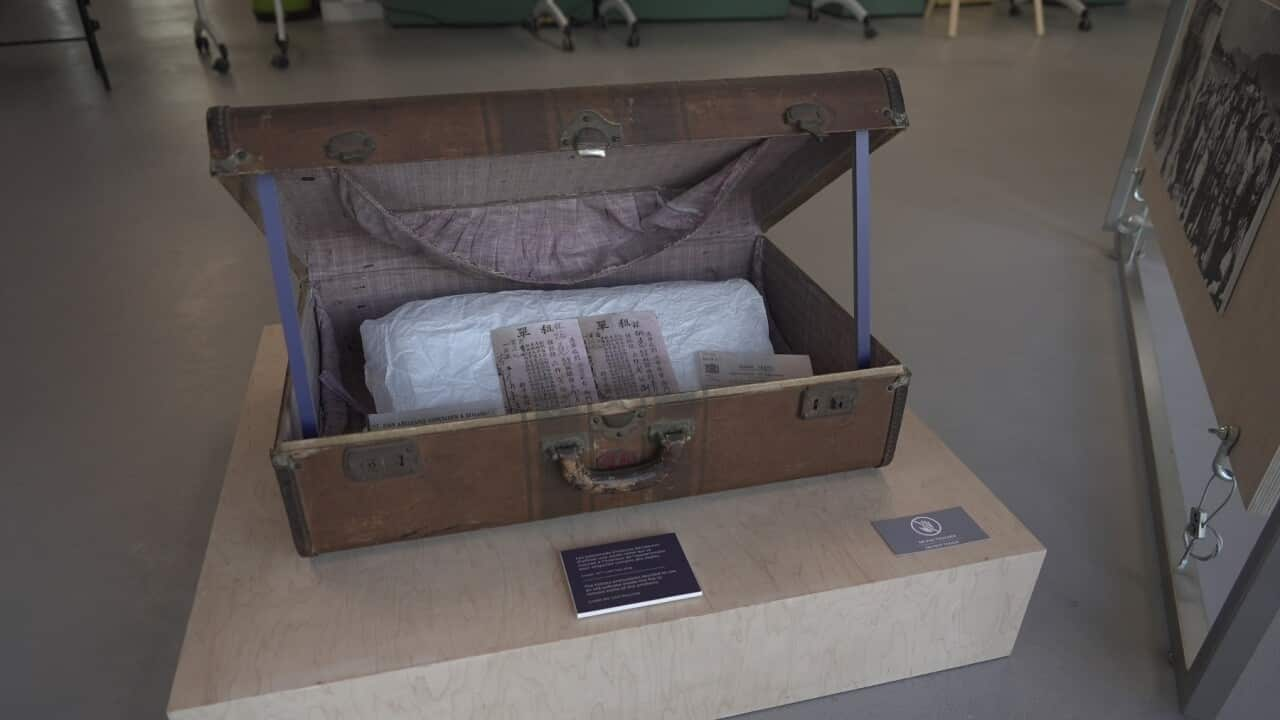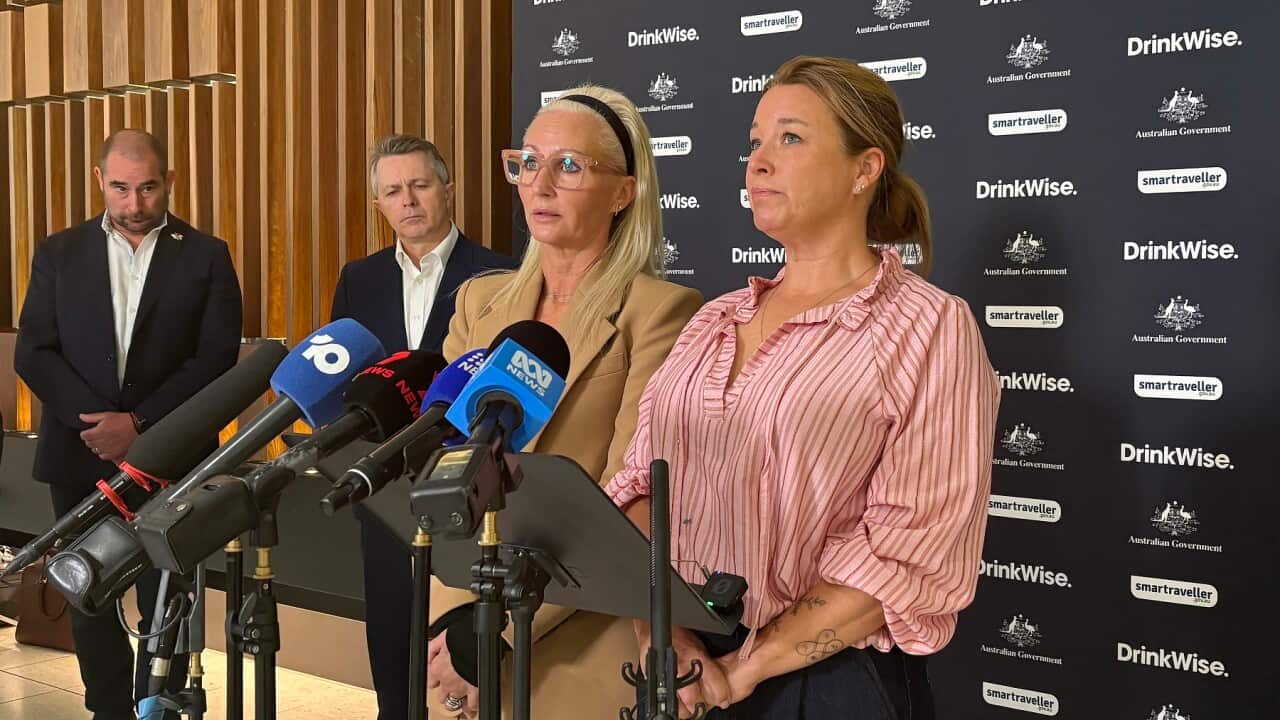Italiano
Più di tre milioni di adulti australiani hanno subìto danni causati dal gioco d'azzardo nell'ultimo anno, con una partecipazione in aumento e perdite economiche significative da parte dei giocatori.
Uno studio condotto su quasi 4000 persone dall'Australian Gambling Research Centre dell'Australian Institute of Family Studies ha rilevato che il 65% ha giocato d'azzardo almeno una volta nell'ultimo anno.
Oltre il 30% ha dichiarato di aver giocato d'azzardo almeno una volta al mese.
Le lotterie erano l'attività più comune, seguite dai gratta e vinci, dalle slot machine, dalle scommesse ippiche e dalle scommesse sportive.
Gli uomini erano più propensi delle donne a giocare d'azzardo regolarmente ed erano anche più inclini a praticare forme più rischiose come le scommesse ippiche e sportive.
Si stima che 3,1 milioni di adulti abbiano subìto danni quali sensi di colpa e stress legati al gioco d'azzardo, prestiti di denaro o vendita di oggetti per finanziare il gioco.
Per il dottor Gabriel Tillman dell'Australian Gambling Research Centre una percentuale significativa di coloro che sono stati classificati come giocatori d'azzardo problematici era anche più incline ad avere pensieri autolesionistici.
"If we're talking about those high risk gamblers, that's about 550,000 people. And so of those people, 16 per cent are experiencing suicidal thoughts, and so that's the kind of magnitude we're talking about. That means they're going without food, missing their bills, borrowing money."
Gli australiani perdono complessivamente 32 miliardi di dollari ogni anno nelle forme legali di gioco d'azzardo, la perdita pro capite più alta al mondo.
Quasi il 20% delle persone il cui partner gioca d'azzardo settimanalmente o più frequentemente ha riferito di aver subìto violenze, rispetto al 7% di coloro il cui partner non giocad'azzardo.
I giovani adulti risultano essere particolarmente colpiti: i giovani di età compresa tra i 18 e i 24 anni che giocano d'azzardo regolarmente sono quasi due volte più esposti al rischio di danni rispetto alle fasce d'età più avanzata.
Il dottor Charles Livingstone della Monash University studia le tendenze del gioco d'azzardo in Australia.
"I mean, one of the problems that young people experience, I would suggest no one has been brought up in our history in an environment where they're constantly bombarded with the promotion of gambling around sport, around normal activities. You can't go and watch a football game without being bombarded with some promotion of gambling. So what we've got is this sort of mad social experiment where young people are being bombarded with gambling advertising from a young age, and we expect that it's all going to come out right? "
Tra gli indigeni australiani, il 27% ha riferito di aver subìto danni causati dal gioco d'azzardo, quasi il doppio rispetto al tasso registrato tra gli australiani non indigeni.
Il dottor Livingstone ha dichiarato che, sebbene le persone provenienti da contesti non anglofoni non giochino d'azzardo con la stessa frequenza della popolazione generale, quando lo fanno tendono a sviluppare una dipendenza con più facilità rispetto agli altri.
Quest'uomo, che desidera mantenere l'anonimato, è uno dei tanti che hanno perso la famiglia, la casa e i mezzi di sussistenza dopo aver ceduto alla dipendenza dalle slot machine.
Ha raccontato a SBS Arabic di aver provato a smettere molte volte.
"I couldn't. I didn't stop because when I see in my pocket, maybe $10, $20, $30, I go to play. I go to play and I lose it and I come back very upset. Many, many times. Many times. Always, always when I go to club, when I come back, I said, oh, this is the last time I am going because I don't want to lose my money straight away. I go, next time when I have more money. Sorry this is a problem.. this is my problem."
Allora perché le persone giocano d'azzardo?
Può essere un modo per socializzare, vedendo sempre lo stesso gruppo di persone in un club, per esempio.
Può anche essere un modo per affrontare i problemi o sfuggire a sentimenti di depressione e isolamento.
Vari studi hanno dimostrato che il cervello rilascia la dopamina, una sostanza chimica che dà una sensazione di benessere, quando i giocatori d'azzardo vincono o stanno per vincere.
Ma la ricerca dimostra anche che il cervello è duttile e, anche se si è formata un'abitudine, le persone possono cambiare e interrompere quell'abitudine attraverso la consulenza e altre terapie.
Mandy Zhang è una consulente finanziaria presso il servizio di assistenza sociale EACH.
Lavora con molte comunità, compresa quella cinese.
"The first step is to talk to someone. It's a small step but it's a big step - someone you can trust. A friend, a family member you know, or a counsellor, or even a helpline like - you know, the gambler's helpline as well. And because our team has culturally diverse counsellors, not just Chinese, they speak different languages and [come from] different backgrounds [and] that can help."
Per Zhang molti servizi di consulenza sul gioco d'azzardo sono gratuiti e aperti a tutti.
"[We] definitely [offer] counselling for free and also it's confidential as well. And the people when they come into the service, we assess their situation and see if they need to be referred out or they want to continue the counselling service. We have finance counselling service as well. We have group sessions and we can refer to another appropriate service if they need it. Anyone can access the service, everything for free, [we have an] open door [policy]. Anyone can access the service."
Il governo federale spera di avere una risposta a una storica indagine sui danni causati dal gioco d'azzardo entro la fine del 2025, dopo che la relazione finale è stata presentata dalla defunta deputata laburista Peta Murphy a metà del 2023.
Le raccomandazioni fondamentali erano il divieto della pubblicità e degli incentivi al gioco d'azzardo.
Gli sforzi del governo per istituire un registro di autoesclusione e limiti autoimposti non hanno affrontato adeguatamente la realtà moderna del gioco d'azzardo.
L'alleanza per la riforma del gioco d'azzardo attribuisce gran parte della colpa alla pubblicità e sta pianificando una propria campagna contro gli annunci pubblicitari sulle scommesse in occasione della finale dell'AFL del prossimo anno.
Martin Thomas è l'amministratore delegato dell'Alleanza per la riforma del gioco d'azzardo.
"Anything is better than the status quo because, we have 1 million gambling ads on our screens every year and it's just impossible to miss the ads and it's driving the surge in gambling, particularly among kids but also young men as well."
National Gambling Helpline 1800 858 858
Lifeline 13 11 14
Inglese
More than three million Australian adults have experienced harm from gambling in the past year, with participation on the rise and gamblers losing significant amounts of money.
A study of almost 4000 people by the Australian Gambling Research Centre at the Australian Institute of Family Studies found 65 per cent had gambled at least once in the past year.
More than 30 per cent said they gambled at least monthly.
Lotteries were the most common activity, followed by scratch tickets, poker machines, race betting and sports betting.
Men were more likely than women to gamble regularly and were also more likely to engage in riskier forms such as race and sports betting.
An estimated 3.1 million adults have experienced harms such as feeling guilty and stressed about their gambling, borrowing money or selling things to fund gambling.
Dr Gabriel Tillman from the Australian Gambling Research Centre says a significant percentage of those who were classified as problem gamblers, were also more likely to experience thoughts of self harm.
"If we're talking about those high risk gamblers, that's about 550,000 people. And so of those people, 16 per cent are experiencing suicidal thoughts, and so that's the kind of magnitude we're talking about. That means they're going without food, missing their bills, borrowing money."
Aussies collectively lose $32 billion on legal forms of gambling every year, the largest per capita losses of any country in the world.
Almost 20 per cent of people whose partner gambled weekly or more frequently reported experiences of intimate partner violence, compared to seven per cent of those whose partners did not gamble.
Young adults were found to be particularly affected, with 18 to 24-year-olds who gamble regularly almost twice as likely to be at high risk of harm compared to older age groups.
Dr Charles Livingstone from Monash University studies gambling trends Australia.
"I mean, one of the problems that young people experience, I would suggest no one has been brought up in our history in an environment where they're constantly bombarded with the promotion of gambling around sport, around normal activities. You can't go and watch a football game without being bombarded with some promotion of gambling. So what we've got is this sort of mad social experiment where young people are being bombarded with gambling advertising from a young age, and we expect that it's all going to come out right? "
Among Indigenous Australians, 27 per cent reported experiencing gambling harms, which was almost double the rate of non-Indigenous Australians.
Dr Livingstone says while people from non-English speaking backgrounds don't gamble at the same rates as the general population, when they do they tend to develop an addiction more readily than others.
This man, who wants to conceal his identity is one among many who've lost their family, home and livelihoods after succumbing to a pokie addiction.
He told SBS Arabic that he has tried to stop many times.
"I couldn't. I didn't stop because when I see in my pocket, maybe $10, $20, $30, I go to play. I go to play and I lose it and I come back very upset. Many, many times. Many times. Always, always when I go to club, when I come back, I said, oh, this is the last time I am going because I don't want to lose my money straight away. I go, next time when I have more money. Sorry this is a problem.. this is my problem."
So why do people gamble?
It can be a form of socialising, seeing the same bunch of people in a club for example.
It can also be a way to cope with problems or escape feelings of depression and isolation.
Various studies have shown that the brain releases the feel-good chemical dopamine when gamblers have a win or a near win.
But research also shows the brain is flexible and even if a habit has been formed, people can change and break that habit through counselling and other therapies.
Mandy Zhang is a financial counsellor with welfare service EACH.
She works with many different communities including the Chinese community.
"The first step is to talk to someone. It's a small step but it's a big step - someone you can trust. A friend, a family member you know, or a counsellor, or even a helpline like - you know, the gambler's helpline as well. And because our team has culturally diverse counsellors, not just Chinese, they speak different languages and [come from] different backgrounds [and] that can help."
Ms Zhang says many gambling counselling services are free and open to everyone.
"[We] definitely [offer] counselling for free and also it's confidential as well. And the people when they come into the service, we assess their situation and see if they need to be referred out or they want to continue the counselling service. We have finance counselling service as well. We have group sessions and we can refer to another appropriate service if they need it. Anyone can access the service, everything for free, [we have an] open door [policy]. Anyone can access the service."
The federal government is hoping to have a response to a landmark gambling harm inquiry finalised by the end of 2025, after the final report was handed down by late Labor MP Peta Murphy in mid-2023.
The keystone recommendations were a ban on gambling advertising and inducements.
Government efforts to establish a self-exclusion register and self-imposed limits did not adequately address the modern realities of gambling.
The alliance for Gambling Reform largely blames advertising - it's planning its own campaign against betting ads at next year's AFL grand final.
Martin Thomas is the CEO from the Alliance for Gambling Reform.
"Anything is better than the status quo because, we have 1 million gambling ads on our screens every year and it's just impossible to miss the ads and it's driving the surge in gambling, particularly among kids but also young men as well."
National Gambling Helpline 1800 858 858
Lifeline 13 11 14











